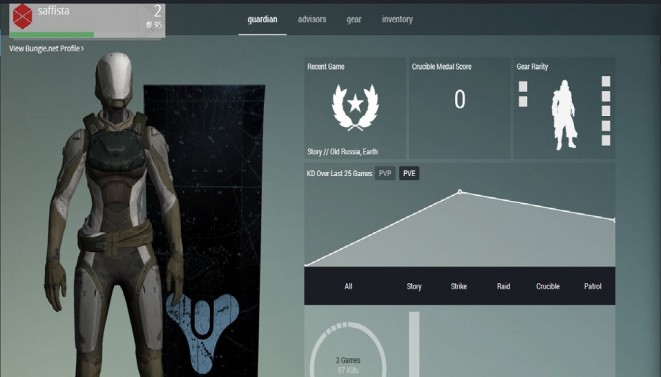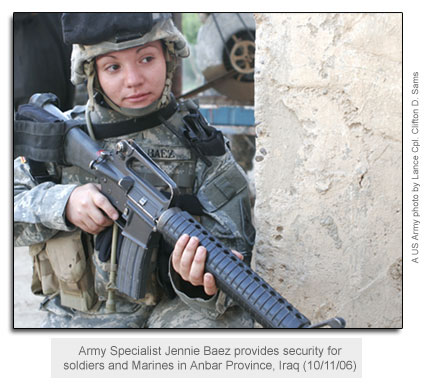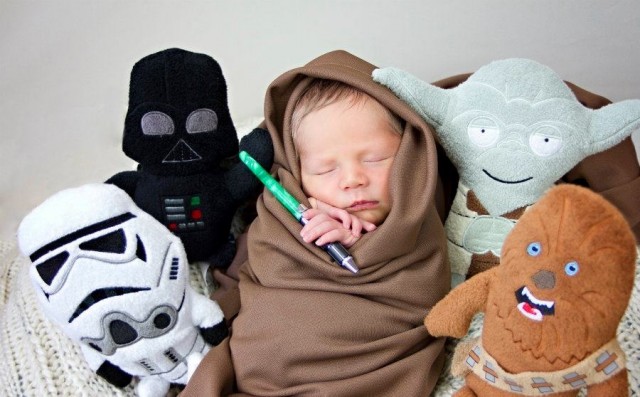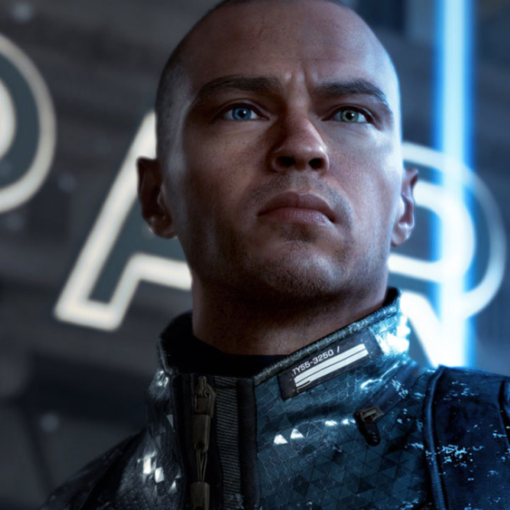Michonne is my favorite character in The Walking Dead universe, in both the show and the comic, so when word came down that she was the first of the characters to get her own Telltale outing, I was thrilled (other comic characters have shown up, but never served as the center of the action). Michonne is everything a good character should be, I think, especially in the apocalypse: she’s tough, with surprising vulnerabilities; she’s capable, but flawed; she has a fascinating history and continues to be a developing force. While the character has diverged between the show and the comics, both remain dynamic, impressive characters. Kirkman and the show creators have never shied from allowing Michonne to be physically strong (despite the show character’s smaller stature, via the amazing Danai Gurira), focusing on her athleticism and the training required to keep her in shape. She’s a rare gem among female characters. If anyone deserved a game, it was her.
And—spoilers ahead—the game itself takes place in the issues after a two-year time skip, when Michonne is nowhere to be seen for a long period. When she finally resurfaces, it is with some of these characters who are also developed within the game, and the game expands on that time when the comics’ attention was focused elsewhere.
However, that very positioning does the story a bit of a disservice, as comic fans know that Michonne and the rest of the crew, at least the ones we’ve seen in subsequent issues, come out of whatever is going to happen here just fine. When Michonne and Pete, captain of the boat we find her on, disembark on an adventure of their own, we know they’re going to make it—and the crew they’re leaving behind probably will, too, since Siddiq is there, and he has work yet to do in the comic.
While this does diminish that sense of suspense, in that we know everyone will survive the submerged walkers and whatever else the game decides to throw out, it should be fine, right? Because from the beginning, Michonne’s solo story is not positioned as an adventure or a quest, or rather, not any sort of physical quest. Michonne is struggling with something else altogether: the memory of the daughters she lost before the events of the comic began. Comic readers know, too, from her reunion with Rick after the events of the game, that she’s come through whatever happens here with a new understanding of herself and her past, though I won’t go into detail on that here (some things have to remain unspoiled, you know). But the lack of real danger to the principle characters, and eerie hallucinatory visions of her lost children set the stage for an internal journey, a struggle for the tightly wound Michonne to lose a few of those threads, to come undone for a while before she can stitch everything together again and emerge anew on shore to rejoin her friends.
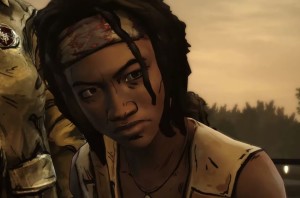 If anyone deserves that journey, it’s her. Comics-Michonne has suffered greatly—brutalized at the hands of the Governor in a way that would have never made it into the television adaptation, linked to the suicide of another character, alone again and again as her companions and love interests fell to the apocalypse, and through all of it, she’s struggled with her own mental health. Her ability to hang on. She’s managed, somehow, but as it opens, this game allows us to see what that looks like, and what the toll has been.
If anyone deserves that journey, it’s her. Comics-Michonne has suffered greatly—brutalized at the hands of the Governor in a way that would have never made it into the television adaptation, linked to the suicide of another character, alone again and again as her companions and love interests fell to the apocalypse, and through all of it, she’s struggled with her own mental health. Her ability to hang on. She’s managed, somehow, but as it opens, this game allows us to see what that looks like, and what the toll has been.
Except what seems to be a journey into Michonne’s mental state quickly shifts and becomes again a post-apocalyptic jaunt into troubled waters (literally), culminating with an altercation with a rival group (again) in which things escalate into a confrontation with self-created despots with streaks of true villainy (again). The Walking Dead games have done all this before, the threats tinged with sexual violence, the little fiefdoms—the only difference is that the story has had more time to unfurl, the characters to develop, and instead of spending that time here, I fear the writers used the familiarity of Michonne as a sort of shorthand. Before we even have a chance to understand her dynamic with Pete and the others, they’re in a new situation, and before we can get much of a handle on that, more things are happening. Yes, of course, everything happens fast in the Walking Dead-verse, where people may easily live and die over a few cans of food and a box of bullets, but this isn’t just a passive ride we’re expected to take. This is a story we must invest in to continue, to write it as we go, and the creators offer little in the way of handholds here.
Here’s the positive, story-wise: the themes of family look as though they may play out in ways that will help Michonne make some discoveries about herself and others. The new character Sam seems to have potential there, and there are wider possible threads within the larger communities of Monroe that may help that story develop. But potential is all we get in a very short game, with chapters that seem to pass in a blink, and much of the game’s time is given over to the villainous Randall and his equally villainous, but smarter, and slightly more interesting, sister Norma. Michonne herself is complex, but is Sam? Randall? Norma? Will even Pete be allowed layers here? There’s no real way to tell from this episode. It’s over far too soon, and all we really get is this: Michonne is fucked up, the apocalypse is fucked up, and people are real fucked up. Because we needed reminders of all those things, I guess.
Technically, too, production suffers. Previous episodes in Telltale’s Walking Dead series were never perfect in terms of controls or animations, but this game suffered through major issues for me on the Xbox One, freezing twice for long moments before shuddering back to life, and stuttering through action sequences. The slowdown contributed directly to a few deaths, as while the button prompts were standard for those action-oriented moments, the timing was a struggle when the game would stop. Requiring player action for something as mundane as sharpening a machete, too, felt like a metaphor for the larger story placement. Yeah, I thought, rolling my eyes, I’ll make Michonne move this whetstone back and forth in what must be the slowest, most awkward sharpening sequence ever, but what does this accomplish? Am I to feel more immersed because I wiggled a stick? Reader, I did not feel more immersed; I felt more annoyed.
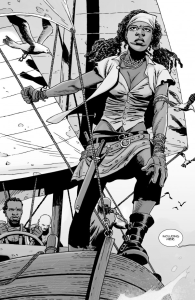
But these things are to be expected from Telltale games; sometimes the design decisions work and sometimes they don’t. What I didn’t expect was the utterly lazy presentation of Michonne’s hair. Michonne herself looks great (mostly): muscular, badass arms on display, the cutting gaze, the anger-wrinkles that reveal her moods. Her outfit is good, and sensible. But her hair is something else altogether. In the front, you can see her signature ‘locs moving, individually. But the back? Her hair, caught in a ponytail, is straight. Absolutely straight and without texture.
Michonne’s hair has never been anything but unapologetically natural, in the comics and the show. Why, then, is Telltale trying to foist some straight-haired bullshit on us at this point? It seems like such a small thing, but I was already iffy on the game’s content and the sight of that hair, which actually happened a lot, just made me flat-out angry. I can’t figure if they just thought it didn’t matter, or that no one would notice, or if they just didn’t understand that Michonne’s hair is not straight, and I don’t even know which of those options would be best. None are good.
Hair is a difficult thing in games. I get it. But I’m starting to feel like it’s almost impossible for Black characters to always get realistic hair, and that’s something that needs rectifying. Why choose Michonne if she can’t be properly brought to life? If we’re just going to visit another settlement run by villains? If we’re just going to meet more people who suffer? If it’s just going to be another game? This is a series that gets so much right in terms of diversity (even when it also gets some things wrong). We get strong women, a Black male lead in season one, variations in body type, even, something we rarely see. So what happened here? What could be the possible reason for Michonne’s hair?
Because I bought the season pass, here’s hoping the later episodes bring something more to the table, because as it is, I felt this was the weakest of Telltale’s The Walking Dead offerings yet, and considering the character they had to work with, that’s a problem. This episode, to me, feels like nothing more than fluff, hints, the merest whiff of a story that lingers somewhere else. But there are two more chances yet to see if there’s anything to that at all, or if that story disappears like Michonne’s visions, gone in a blink, with nothing left behind.

